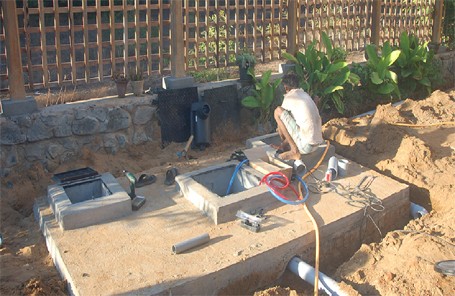A Complete Guide to Grey Water Systems
Water is the elixir of life and its increasing shortage is a growing concern for people across the globe. To conserve this precious natural resource, grey wastewater systems are being used widely. It is a great replacement for freshwater and can be used for many purposes such as irrigation of crops, gardens, washing cars, floors, etc.
f you are new to the concept of greywater, it helps to know that a greywater system allows you to reuse and save huge volumes of water throughout the year.
What is Grey Water?
The water that runs into drains from your bathroom, shower or laundry, or any kind of domestic wastewater is processed by greywater systems. If this water is not treated, you can use it for irrigating fields and gardens. It is important to note that this water has not come in contact with sewer water and hence is completely different from the water flushed out from toilets.
Benefits of Grey Water
Greywater is now a preferred substitute for freshwater for uses such as cleaning, washing, and irrigation. There are several benefits that it offers, including:
- Reduces consumption of freshwater
- Helps you save on your water bill
- Lesser usage of public supply water
- Is eco-friendly
- More affordable option than rainwater harvesting
- Saves you money and space
The several advantages offered by greywater recycling systems are making it a preferred choice among homeowners. Besides being cost-effective and convenient, greywater treatment is environment-friendly. You are recycling and reusing water, which means that you are reducing the amount of freshwater used for your household activities.
How Is Greywater Treated?
Greywater treatment is conducted in a septic tank where water from laundry, showers, and bathrooms are collected through a separate pipe. This pipe ensures that this water does not mix with sewer or black water.
Once the water is collected, solid wastes such as hair, food particles, and other unwanted components are filtered out. The second step is to remove microbes, pathogens, and chemicals from the water. After these procedures, you can use the resultant water for irrigation and washing purposes.
Things to Consider Regarding Greywater
Here are a few things you must keep in mind while using greywater systems:
- Do not store untreated water for long as it can cause diseases.
- If you use laundry chemicals such as bleach, avoid utilizing the treated greywater for anything.
- Take care that the pipe is laid underground to prevent children and pets from coming in contact with it.
- If you are suffering from a stomach ailment, refrain from using greywater.
Is Grey Water Bad for Your Backyard?
You would wonder if greywater is bad for your backyard. The answer to this question lies in the quality of the water that runs off your laundry and washrooms. If you use a lot of chemicals in your water such as chlorine, bath salts, bleach, etc., the greywater can be harmful to your backyard. The two factors that can impact soil health are salinity and pH.
Salt can be detrimental to the soil. Excessive salt build-up can result in barrenness, which means you cannot grow anything in your backyard. Sodium-based salts are the ones that you should be particularly careful about. Most detergent and washing agents contain sodium salts, which can make treated greywater harmful to your backyard. The best way to avoid sodium accumulation is to check the packet of your detergent and buy an alternate that uses less salt.
pH determines the acidity or alkalinity quotient of the soil. The kind of pH you need in your backyard depends on the kind of plants you have. Different areas in your garden would have soils of different pH levels. It helps to determine what kind of pH you will need for different plants. For instance, you must monitor the pH levels of your garden if you are using greywater for fruits, herbs, and vegetables.
Besides salt and pH, you must also keep a watch on oils and fats that can be potentially harmful to your plants and yard. Eucalyptus oil, tea tree oil, etc often used in shampoos and toothpaste can have a damaging effect on your soil.
Is Grey Water System Safe?
Greywater systems provide an efficient substitute for freshwater, which is safe as long as you are using them for surface cleaning, washing, and irrigation. However, never serve untreated water to humans or pets for consumption. Also, do not store untreated water for long as it can cause diseases.
What Should I Look for in a Grey Water System?
If you are keen on recycling water and reusing it, greywater systems are a great investment. They not only help you in saving on water bills and reducing the pressure on public sewerage systems but also help you adopt an eco-friendly practice.
However, while picking out a greywater system, you must keep a few things in mind. Look for systems that are easy to install and operate. Also, understand from the operator about the effluent quality so that you know for sure that the greywater treated using the system is safe for use.
Do check about the maintenance of the greywater recycling system, its performance, and ensure it consumes fewer resources.
If you are still confused and need expert consultation, you can get in touch with the consultants at Cleantech Water – the leading name in water treatment plants in India.
To know more, please check Cleantech Water.

